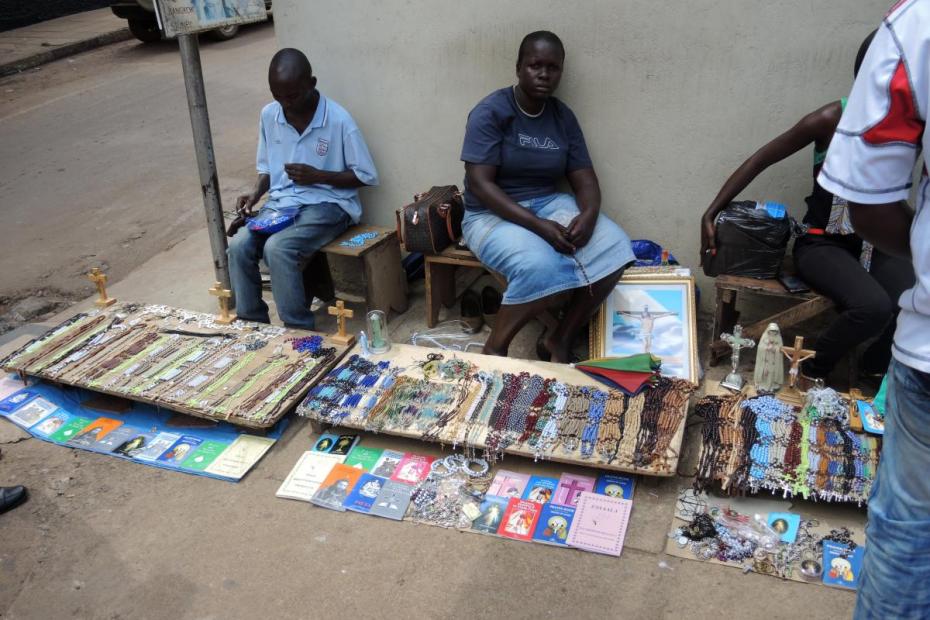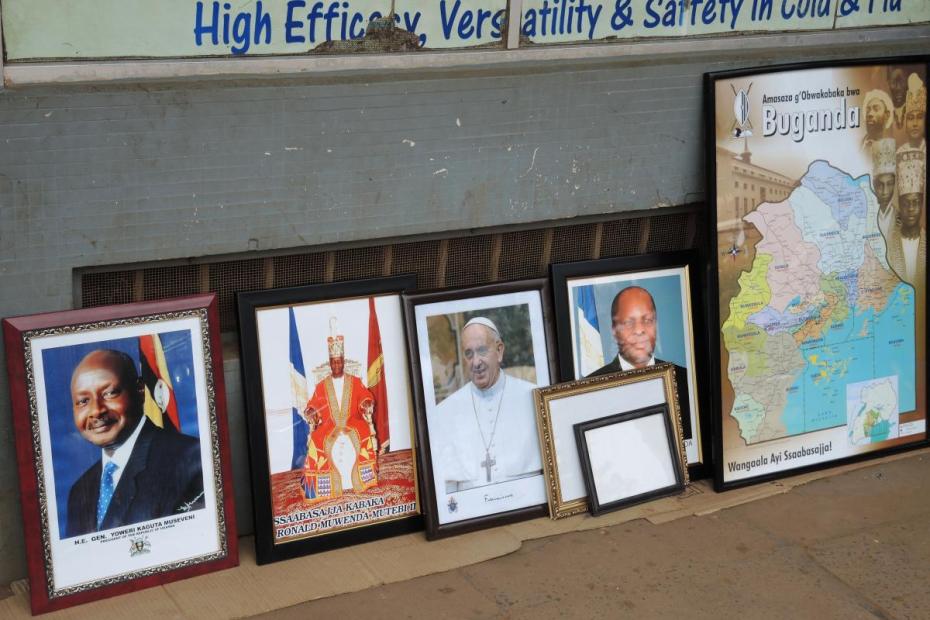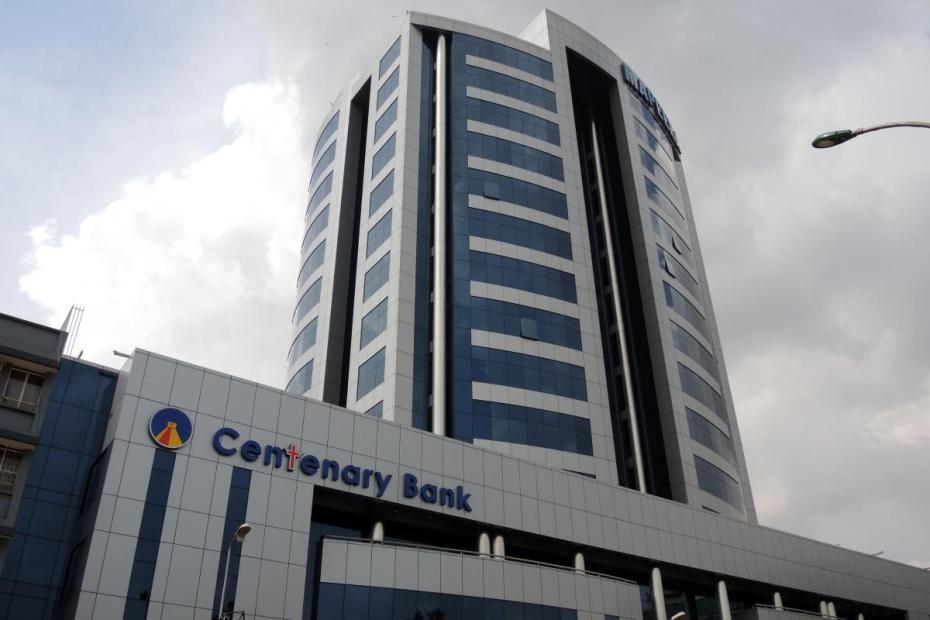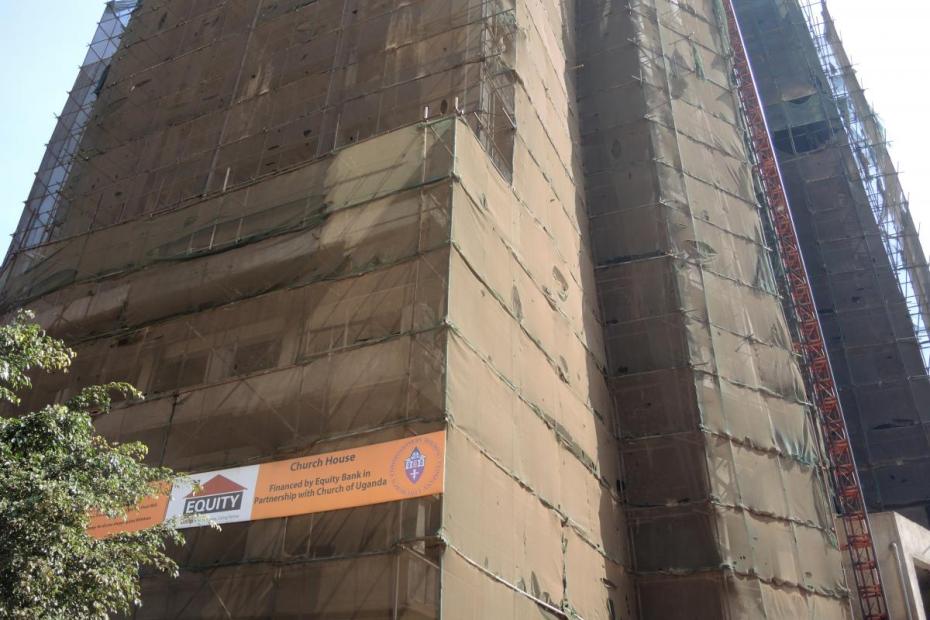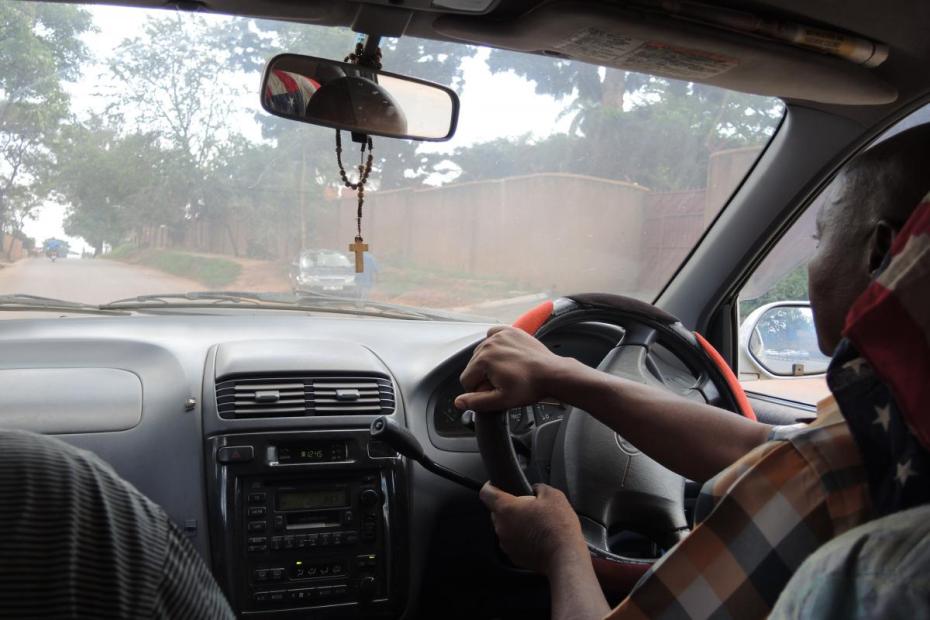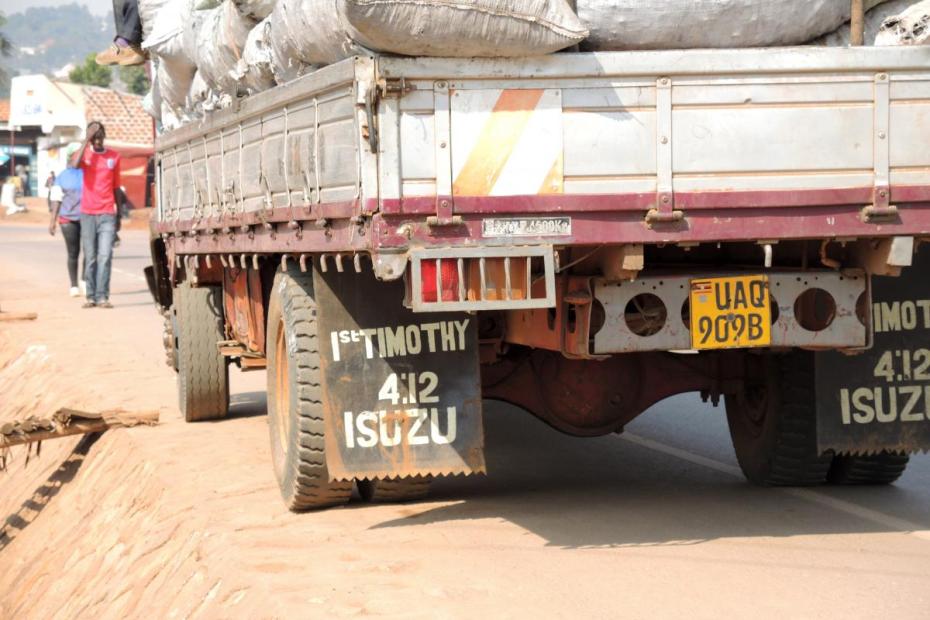One sees rosaries on cars, and occasionally a pious phrase on trucks or motorcycle taxis, but never, even in all Catholic areas, does one see a religious image in a business, from the smallest to the largest. Ugandans say that this is out of a hesitation to mix the sacred and profane. In other ways, though, the two are certainly mixed. Religious news, Catholic, Anglican and Muslim, is prominent in local secular newspapers, including stories that would in most places find a place only in a diocesan or religious newspaper.
One interesting and huge exception to this hesitation over mixing sacred and profane is the Centenary Bank, recent launched and owned by the Catholic dioceses of Uganda. The bank has a major office tower in downtown Kampala and branch offices in small towns everywhere.
While Uganda is a market society with a robust private sector, Ugandans often do not trust banks, and tend to do business with coreligionists. As one put it, “For a Catholic to not do banking there will almost seem like a sin. But it will do a lot to help small scale saving and investment and build up the social welfare of Catholics.”

